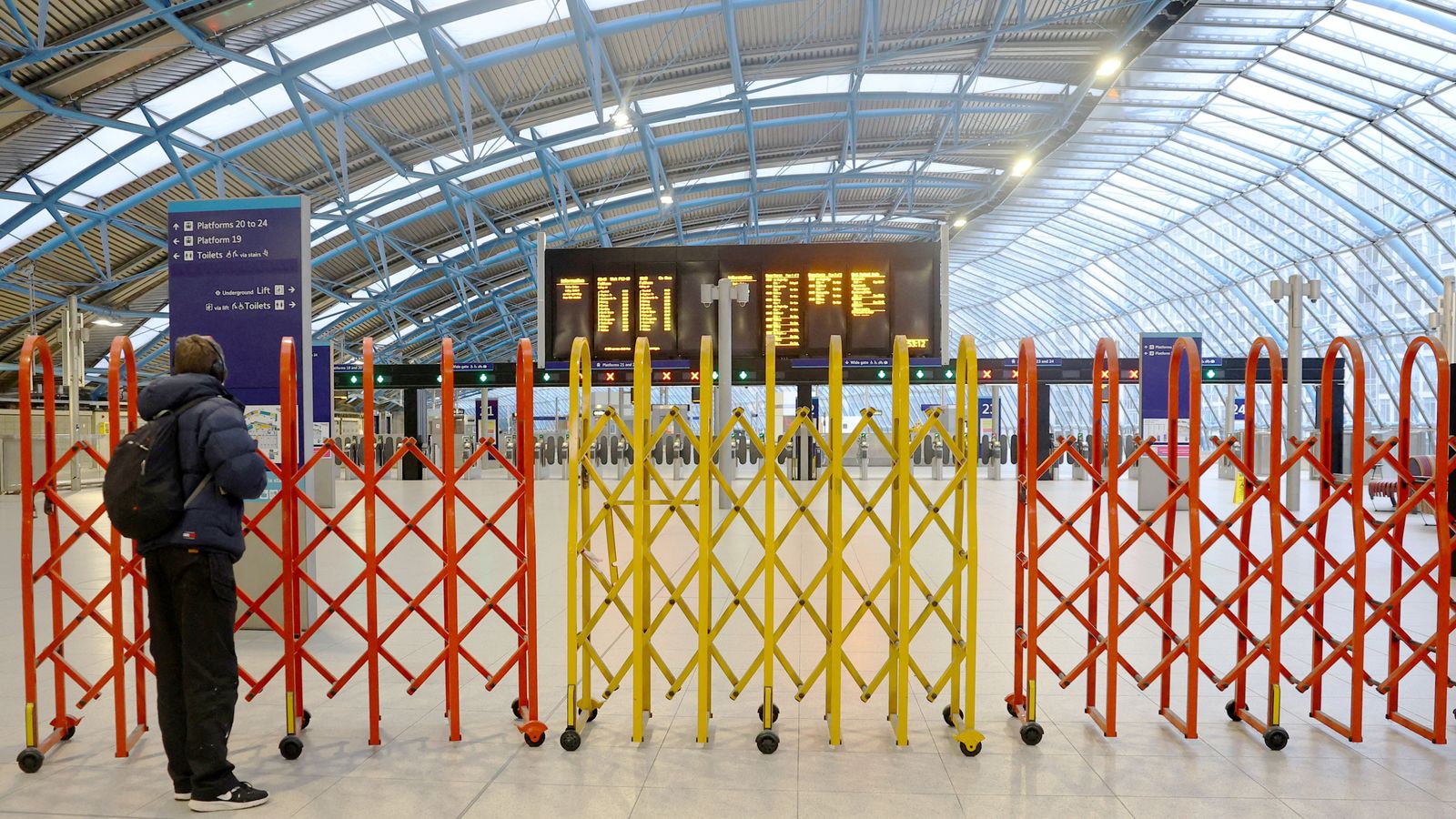Train strikes in May 2024: Full list of dates and lines affected
Train drivers will stage a fresh wave of strikes and overtime bans in May, causing disruption to the rail network.

The strikes are part of a long-running dispute over pay.
Members of Aslef union at 16 rail companies will walk out on different days from 7 to 9 May.
Additionally, all members will refuse to work any overtime from 6 May to 11 May.
Here is a full list of the services affected by strikes and when.
Rail strike dates
Tuesday 7 May
Strikes will affect c2c, Greater Anglia, GTR Great Northern Thameslink, Southeastern, Southern, Gatwick Express and South Western Railway.
Wednesday 8 May
Strikes will affect Avanti West Coast, Chiltern Railways, CrossCountry, East Midlands Railway, Great Western Railway and West Midlands Trains.
Thursday 9 May
Strikes will affect LNER, Northern Trains and TransPennine Express.
Overtime ban dates
From Monday 6 May to Saturday 11 May union members will not work overtime.
Overtime bans, an action short of a strike, means some services may not be running or may be reduced as drivers refuse to work their rest days.
People are advised to check before they travel, as some areas may have no service.
How do strikes and overtime bans affect services?
Strikes tend to mean services on lines where members are participating are extremely affected or cancelled entirely, whereas overtime bans often lead to reduced services.
Are there strikes on the Tube too?
There have been regular strikes on London Underground too recently, and while there aren't any planned walkouts for drivers, customer service managers are set to walk out on Friday 26 April in a dispute over terms and conditions.
There will also be an overtime ban for the customer service managers on the following days:
Monday 29 April
Tuesday 30 April
Wednesday 1 May
Tuesday 2 May
Wednesday 3 May
Thursday 4 May
Friday 5 May
The Transport Salaried Staffs' Association (TSSA) says the action by its members is likely to cause Tube stations to close at the last minute, including on the Saturday following the strike (27 April), while TfL has said on its website "some stations may need to close at short notice".
Despite the warning, a TfL spokesperson has said they aren't expecting significant disruption.
This action follows strike action taken by the same workers on 10 April, which the TSSA said had a "real impact" with "many stations shut at short notice".
They say they are "extremely concerned" about TfL's 'Stations Changes' proposals.
"We have made it clear that our union will not accept the continued threats to our members' roles, locations, terms, and conditions to stand unchallenged," a TSSA spokesperson said.
"We will continue to take sustained action until London Underground is prepared to negotiate with us in good faith."
Commenting on the impending strikes, a TfL spokesperson said: "We are disappointed that TSSA is continuing with this strike action following a consultation process.
"While we don't expect this action will cause significant disruption, we urge TSSA to continue to work with us to help find a resolution.
"There are no planned job losses as part of these vital changes which will improve the service we provide to customers at our stations."
How can I stay in the loop?
You can use the National Rail's journey planner to see when trains are running.
Be sure to check it close to when you plan to travel, as it will be updated regularly.
Why are the strikes still happening?
Aslef rejected a two-year offer of 4% in 2022 and another 4% this year, saying it is way below inflation, and is linked to changes in terms and conditions.
Aslef said train drivers have not had an increase in salary for five years, since their last pay deals expired in 2019.
The union said after its members voted overwhelmingly in February to continue taking industrial action, it asked the train operating companies to hold talks.
General secretary Mick Whelan said the year-old pay offer of 4% and another 4% was "dead in the water".
-sky news







